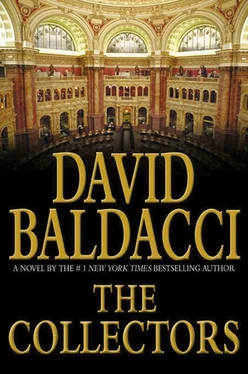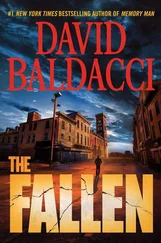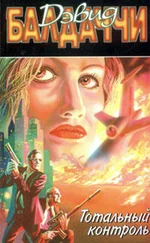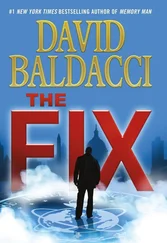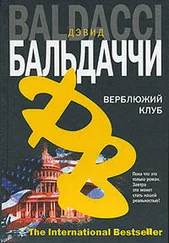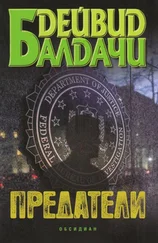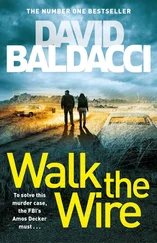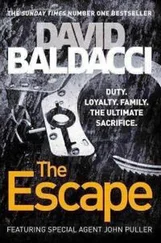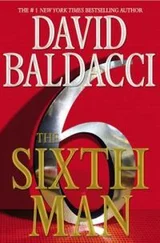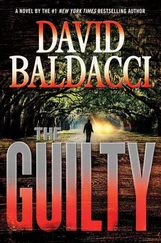“So you’re saying Bradley was a spy?” Milton asked.
“I’m saying it’s a possibility.”
Caleb said, “But if Bradley was working with America’s enemies, why would they kill him?”
“There are two possibilities,” Stone replied. “First, he might have asked for more money in return for his acts of treason, and they decided to kill him instead. Or—”
Annabelle said, “Or we killed him.”
Stone glanced at her and nodded slightly. The others looked stunned.
Caleb exclaimed, “We? As in our government !”
“Why kill him? Why not bring him to justice?” Milton added.
“Because doing that entails it all coming out,” Stone said.
“And maybe the CIA and Pentagon don’t want people to know they were beaten by the other side,” Reuben added.
“And the CIA is not known for its compassion,” Stone added dryly. “Even the Speaker of the House may not be immune from their target sheet.”
“But if it is our own government behind this, who were the people who kidnapped and tortured you, Oliver?” Milton asked.
Annabelle shot him a glance. “You were tortured?”
“I was interrogated thoroughly by some very experienced people,” Stone replied.
“Thoroughly interrogated? They tried to drown you,” Caleb snapped. “By... water-dunking you.”
Reuben slapped his leg in fury. “Water-dunking! For God sakes, Caleb, that’s what they do to clowns at the fair. What they did to Oliver was water- boarding, and it sure as hell ain’t the same thing.”
Stone said, “To address your question, Milton, I don’t know how my abductors play into this yet. It doesn’t make sense that if our government killed Bradley, they would also be interested in what we’ve found out. They’d already know.”
“It would make sense if the agency that killed Bradley did the deed on its own, and another agency is trying to play catch-up,” Annabelle offered. “We may have one agency pitted against another.”
Stone looked at her with even more respect. “That’s an interesting theory. How it plays out for us is hard to say right now.”
“Are you still thinking this is tied to Jonathan’s death?” Annabelle asked.
“The common denominator all along has been Cornelius Behan,” Stone said. “His appearance at the library and his interest in the fire suppressant system only makes our suspicions seem more well founded. That’s the tie to Jonathan. Cornelius Behan. And to get to the bottom of that, we have to find out how Jonathan died.”
“So we have to burglarize the Library of Congress,” Caleb groaned.
Stone put a hand on his friend’s shoulder. “If it makes you feel any better, Caleb, it’s not the first government building I’ve broken into.”
Caleb managed to get Stone and Reuben through security on the strength of his credentials and the lie that they were important visitors looking at an exhibit after hours, although Caleb did so reluctantly and thus not very smoothly.
As they took the elevator down to the basement, Caleb complained, “Well, I don’t feel all that different for having committed a felony !”
“Oh, the felony’s coming up, Caleb,” Stone said, showing his friend the ring of special keys. “What you did back there was probably no more than a misdemeanor.” Caleb merely glared at him.
They located the room, which had large double doors. Stone quickly found the key on his ring that would fit the lock. A moment later they were inside the spacious room. The fire suppression equipment was against one wall.
“Now I see the reason for the large doors,” Stone said.
The cylinders were huge, each probably weighing nearly a ton, and would not have fit through a regular-size door. Several of them were connected to pipes that ran to the ceiling and beyond.
The labels on the cylinders all read “Halon 1301.” “Fire Control, Inc.,” Stone said, reading the name of the company that had installed the equipment, which was also printed on the cylinders. He next studied the piping configuration. “There’s a manual switch here to turn on the gas. And the pipes must run to a number of rooms in addition to the book vaults. But it’s not clear which cylinder would be running to your space, Caleb.”
Reuben looked over Stone’s shoulders. “And you can’t really tell if they’ve been discharged or not.”
Stone moved to the HVAC ductwork and pulled out the drawing Milton had done. He glanced at a section of ductwork that rose straight to the ceiling.
“Why are you so interested in the HVAC, Oliver?” Reuben asked.
“If some sort of gas was used to kill Jonathan, then the killer would have to know that he’d be at an exact spot before knowing when to turn on the gas line from down here.”
Caleb said, “That’s right, I hadn’t thought about that. Since there was no fire to trigger the gas, it had to have been turned on manually. But to do that, you’d have to be in this room. So how could the killer know that Jonathan would even be in that part of the vault?”
“I think he knew Jonathan’s daily pattern. He was always the first one in the vault, and he regularly visited certain areas while he was inside, including the place where he died.”
Reuben shook his head. “Okay, but from what Caleb told us he found DeHaven’s body about twenty feet from one of the nozzles, meaning he was in the perfect place to be killed by the gas. But how would the person have known that all the way down here?”
Stone looked at Milton’s drawing and then pointed to the HVAC. “This trunk line feeds directly into the book vault, running through all levels of it.”
“So?”
Stone was looking around the HVAC and then stopped. On the side not visible from the main area, Stone pointed at something. Reuben and Caleb looked at the spot.
“Why would you have an access panel cut into the ductwork?” Reuben wanted to know.
Stone opened the small panel and looked inside. “Caleb, remember the vent in the ductwork near where Jonathan’s body was found. The grille was bent?”
“Yes, I remember you pointing that out. What about it?”
“If someone placed a camera attached to a long cable inside the ductwork in the book vault and bent the grille open, the camera would have a clean shot of the vault area where Jonathan was that morning. And if someone was down here with a receiver attached by that cable to the camera, I believe he could see everything going on up there, including Jonathan’s movements.”
“Damn,” Reuben said. “And they used the ductwork—”
“Because that was the only way to run the cable. A wireless signal might not go through all the concrete and other obstructions,” Stone said. “I think if we examine the ductwork inside the vault behind that bent grille, we’ll note some evidence of how the camera was hung. The person waits down here, sees Jonathan on the camera and hits the manual switch, having disconnected the warning horn beforehand, and in ten seconds the gas is fully dispersed and Jonathan dies.”
“But whoever did it would certainly have gone to retrieve the camera, so why didn’t he bend the grille back then?” Reuben asked.
“He might have tried, but once you start bending those grilles, it’s hard to get them back perfectly.” He looked at Caleb. “Are you all right?”
Caleb was ashen-faced. “If what you’re saying is true, then someone working at the library killed Jonathan. No one else could’ve entered the book vault unaccompanied.”
“What the hell’s that?” Reuben hissed.
Alarmed, Stone looked at the door. “Someone’s coming. Quick, behind here.”
They scrambled behind the HVAC system, Reuben having to half carry the terrified Caleb. They had barely gotten out of sight before the double doors opened. Four men came in, all wearing blue jumpsuits. Right behind them a forklift sailed into the room, driven by a fifth man. Another, obviously the boss, held a clipboard as the others gathered around him.
Читать дальше
